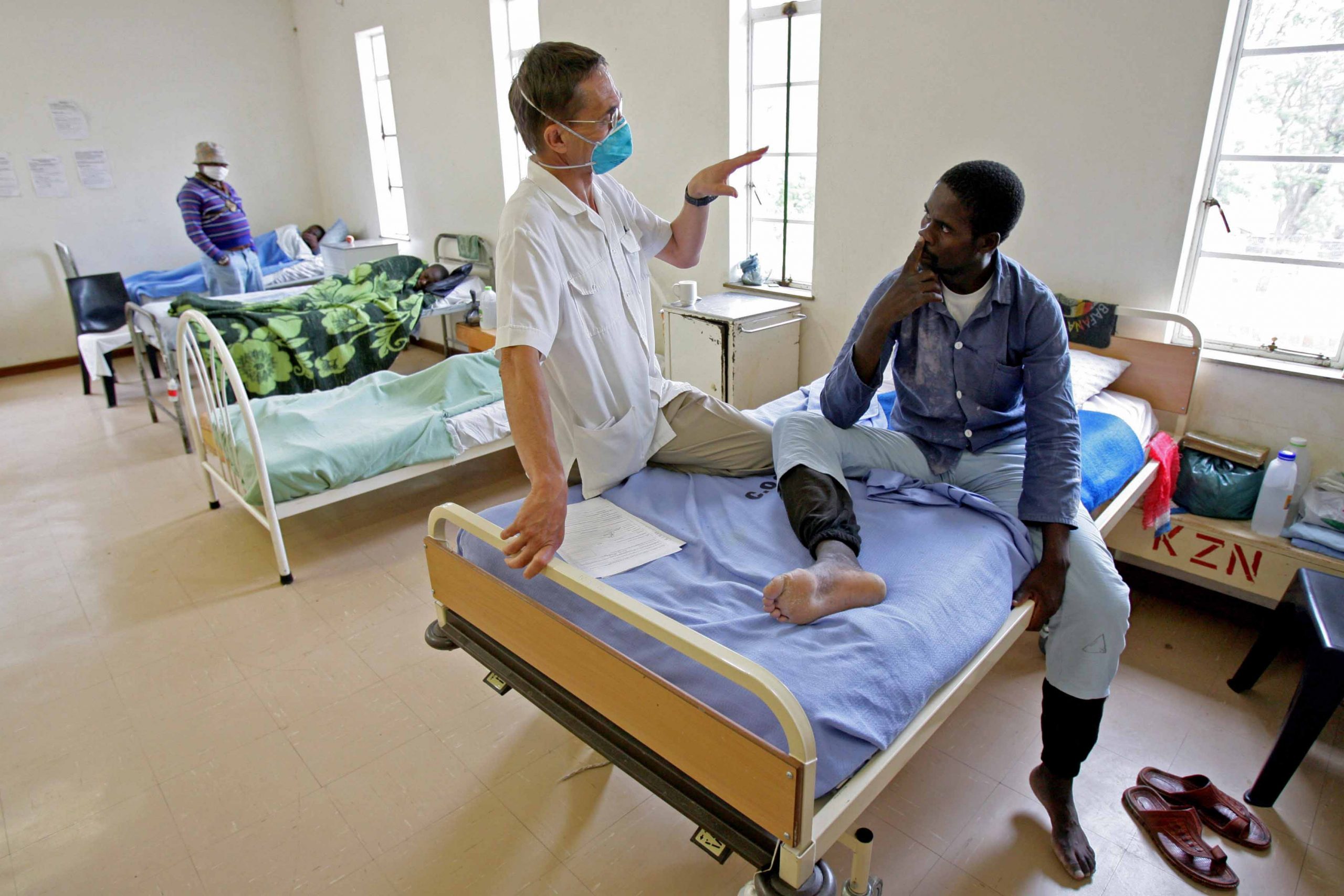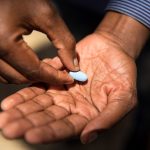Sustained HIV and TB care good for Covid-19 fight
Those with underlying medical conditions are at high risk of severe illness owing to Covid-19. In South Africa, it may be the many people living with both HIV and tuberculosis.
Author:
30 April 2020

As more and more people get infected with Covid-19, concerns grow that those living with chronic illnesses like tuberculosis (TB) and HIV, and not on treatment, may be hardest hit. Experts are calling on the government to ensure that screenings and treatment efforts are intensified to help halt what might become a disaster.
Nontombi Lekoane, 25, a provincial organiser at the Treatment Action Campaign (TAC), says she worries about patients who have tested positive for both HIV and TB but are still not on treatment. She was born with HIV. “I am lower than detectable. I think about other people who are tested but still scared of starting the treatment. People who are getting the medication, but are unemployed and struggling to feed themselves so that they can take the medication,” she says.
The US’s health protection agency, the Centers for Disease Control and Prevention (CDC) says that the fact that there is currently no information that details the risks of Covid-19 in HIV patients does not mean all is well. However, at greater risk of contracting Covid-19 are HIV patients who are not on antiretroviral therapy (ART) yet and those with a low CD4 cell count.
“If people with HIV are not on ART they are going to die and it is likely that Covid-19 could be the immediate cause. But if they are on ART and virally suppressed that should not be a problem,” says epidemiologist Brian Williams.
Related article:
Williams says that it is important to understand that people with HIV are at a much greater risk of contracting TB, which is also a disease of the lungs. “And of course the Western Cape, and especially the coloured townships, have the highest rates of TB in the world, even before HIV struck,” he says. Contracting Covid-19 while living with TB might prove deadly, Williams adds.
Christoforos Mallouris, a community support adviser at the United Nations Programme on HIV/AIDS (UNAIDS), says that TB as well as Covid-19 are diseases that attack primarily the lungs. He says it does not matter that the biological agents are different, with TB being bacteria and Covid-19 a virus. “Since they both primarily attack the lungs, we suspect that people with TB may have poorer health outcomes,” he says.
At this time, it is important more than ever to get people to know their HIV and TB status, and for the health department to continue programmes in place for both diseases, Mallouris says.
“We need to continue the HIV and TB programmes, more than ever, to really make sure that those who are not on treatment, whose immune systems are suppressed, and health outcomes might be worse if they contract Covid-19, should get on the right treatment as quickly as possible.”
There were 7.5 million people living with HIV in South Africa in 2018, according to Statistics South Africa (Stats SA). According to UNAIDS, only 62% of these people were on treatment. In 2018, the World Health Organization (WHO) labelled South Africa as one of the countries with the highest burden of TB. The country had more than 300 000 active cases in 2017.
Related article:
People living with HIV are a diverse group. The conditions that put them at risk of getting sick from HIV and TB are still there, and they will be amplified because of Covid-19, Mallouris adds.
He highlights that this should be done with a human rights approach. “This is not the time to violate human rights or impose anything on people. We have to use the same models as before,” he tells New Frame.
Lessons from the HIV/Aids fight
Mallouris says South Africa should consciously draw lessons from its long-lasting battle with HIV/AIDS. He says, “South Africa also has the largest ARV programme in the world. It’s a country that has a tremendous experience in terms of what it means to deliver at a large scale.”
To deliver such services well means identifying people living with HIV and TB, helping them get diagnosed, linking them with care and ensuring that they remain in care, says Mallouris.
“It’s not a simple distribution of pills, it’s actually a complex process that South Africa has done tremendously well. It has done so with a collaboration between community and health systems. So it’s not just the doctors and the nurses that are out there. It’s actually community [health care workers] that are close to the ground, and they know their people. That is a great asset to have.”
Related article:
Mallouris says that the South African government displayed immense leadership by declaring a national lockdown in the early stages of the pandemic. “Perhaps some view those actions as drastic but they have had an impact in the slowing down of the spread. Which then gives us time to prepare the health and community systems to respond to it adequately, when or if we see the rise of the epidemic.”
As South Africa rolls out mass Covid-19 screening, HIV testing and treatment should slowly be incorporated, says Dirk Taljaard, Executive Director of Bophelo Pele, a community based organisation that provides HIV testing and treatment services.
“In the month leading-up to the Covid-19 lockdown we intensified our activities in the anticipation that Covid-19 might have a greater impact on those who are HIV infected or who have TB,” says Taljaard.
Related article:
Furthermore, Taljaard says community health workers will be the backbone of the screening and testing initiatives.
Williams says South Africa should have built a mass testing programme in the early stages of the pandemic. The lockdown has, however, bought South Africa time to do just that, he says. “We therefore need to use the lockdown time to get the test kits, work out how much bed space we need, ICU units, respirators, protective gear for health workers, develop sensible monitoring and surveillance. In other words, traditional public health.”
“What everyone seems to forget is that, if you think about it, contact tracing very quickly leads you to those who are “super spreaders” or, those who are infecting the greatest number of other people. That is why it works,” says Williams.
A new prescription method
Mallouris says UNAIDS is calling upon all governments to implement a multi-month prescribing policy, where patients receive many months’ worth of ART regimens at once.
“To implement this guideline it takes time, health systems must be ready. But it also takes a change in the perceptions we have on HIV,” he says.
In early March, Xolisile Manana, 26, went to her local clinic to collect her monthly medication. She was given two months’ worth of antiretroviral drugs (ARVs). She says this has helped during this critical time. “They have made it easier because they have also sent my medication to the nearest doctor. I can just collect,” she says. This should continue because it will help reduce long queues in clinics, Manana adds.
TAC’s Lekoane agrees that the multi-month prescribing policy is necessary. Because ARVs are different, there is a first and second regimen, what health facilities can do is to check the number of HIV patients they have, and divide the medication. “This will ensure that medication is distributed fairly,” she says.
Related article:
Mallouris says they recommend a three-month treatment dosage. “I think the country is looking at its stocks as well as its policies to see what they can provide. UNAIDS supports that.”
He says this must be done so patients do not have to go out often. This will also, by extension, free the health system so it focuses on what is important right now: fighting the pandemic.





